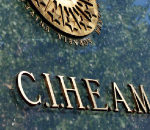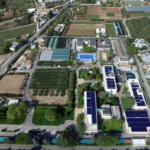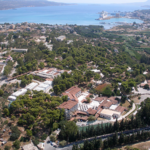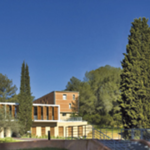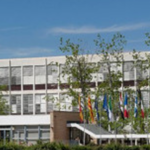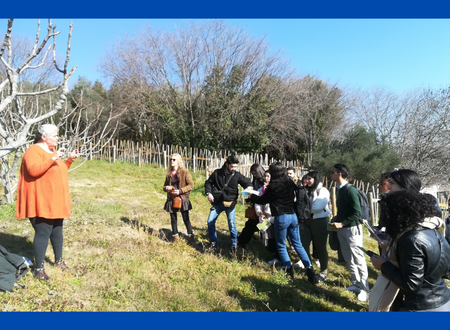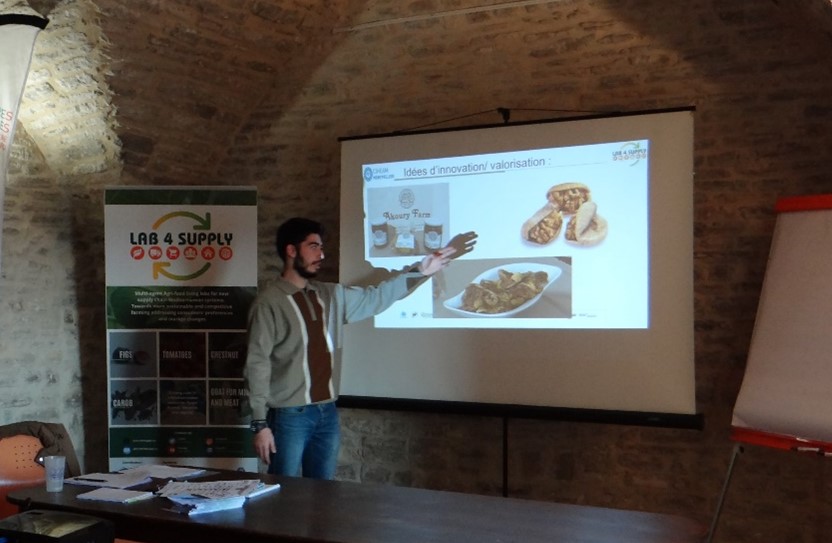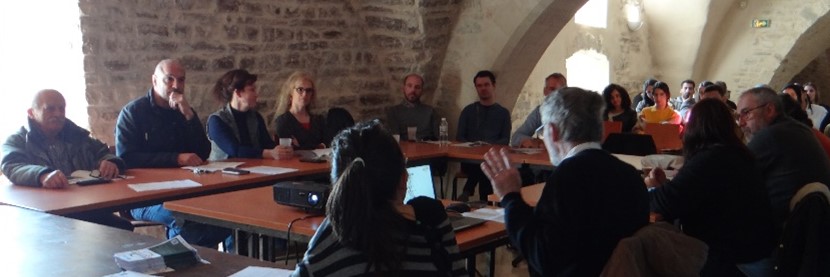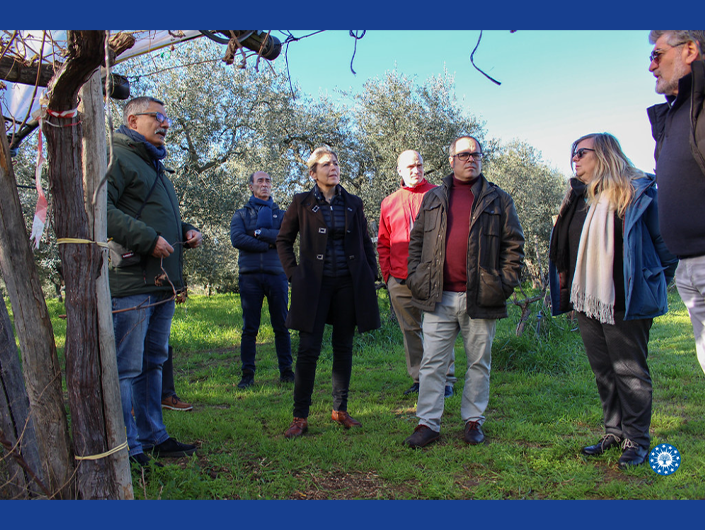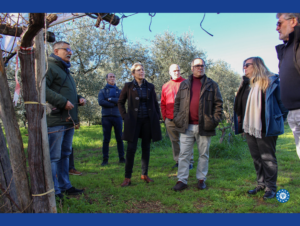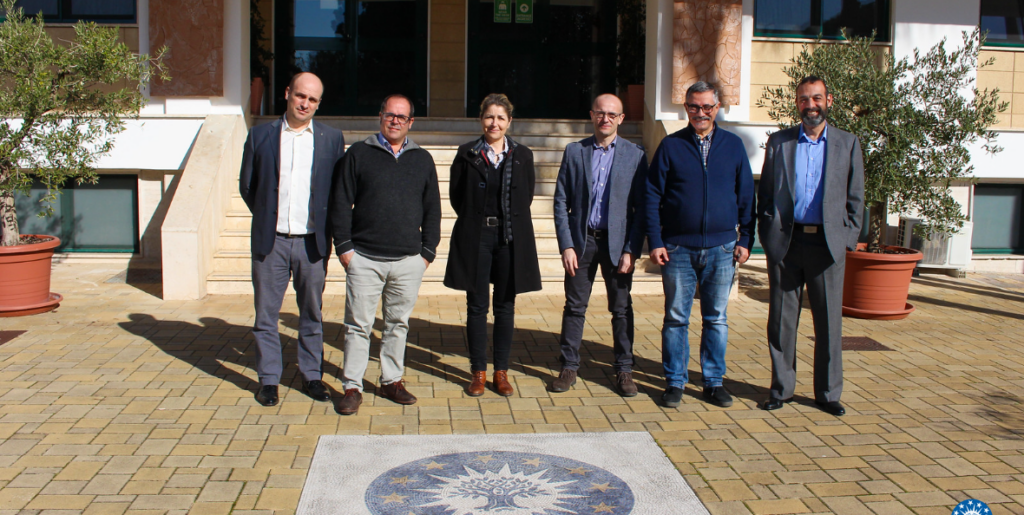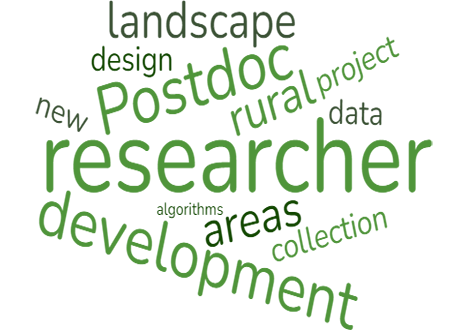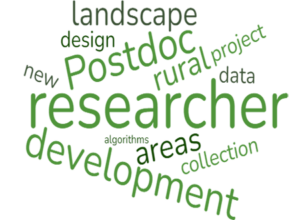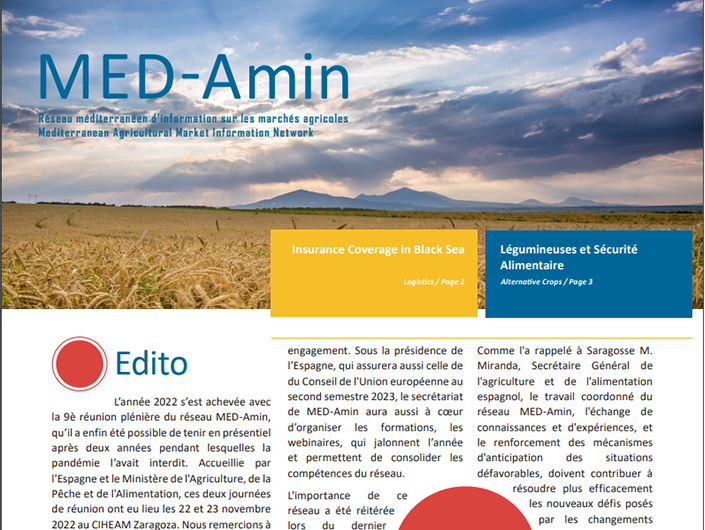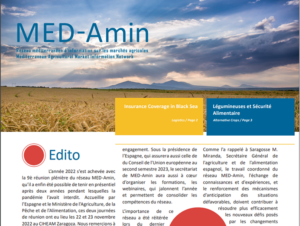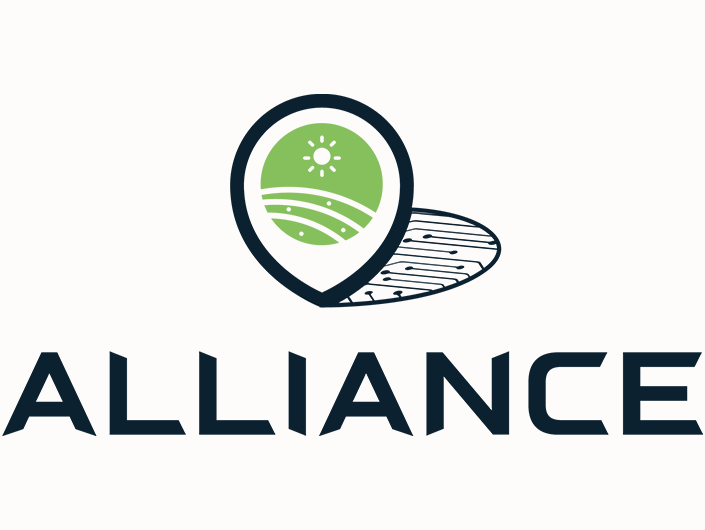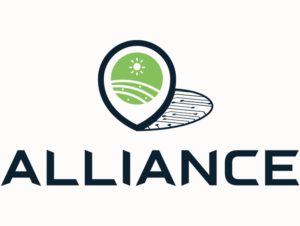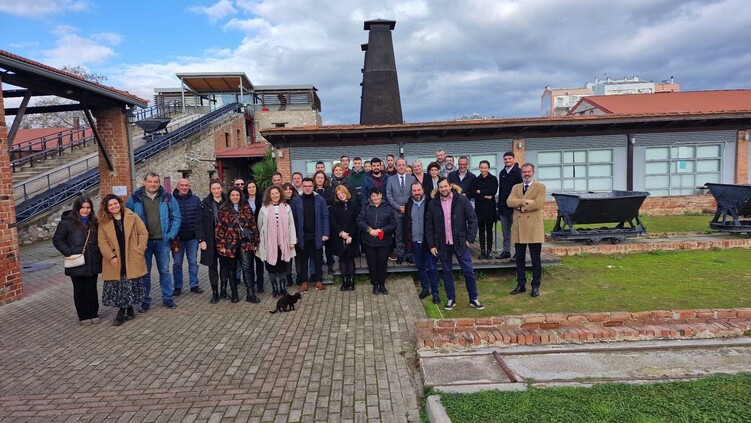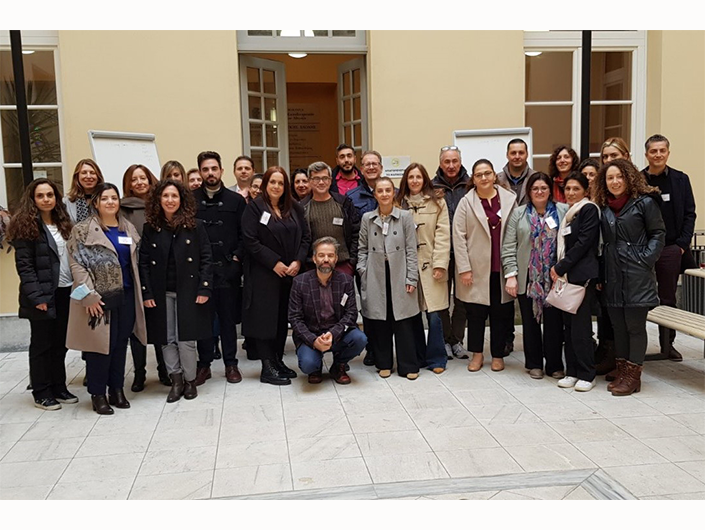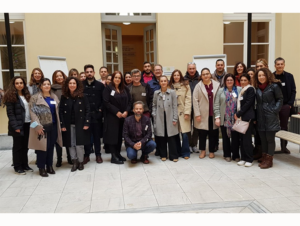In the framework of the PRIMA LAB4SUPPLY project (www.lab4supply.eu), CIHEAM Montpellier organized the first meeting of the Living Lab on the fig sector in Vézénobres, at the Maison de la Figue, on February 14th 2023.
This meeting was supported and attended by the Mayor of Vézénobres, the Agglomération of Alès and the Chambre d’Agriculture of the Gard department.
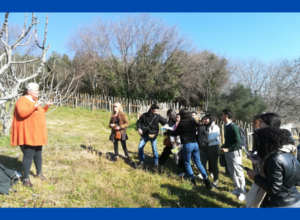
The entire sector was present at this working meeting, and farmers, producers, distributors, wholesalers, and small traders exchanged views with researchers, political leaders and decision-makers, and consumer representatives.
The objective of this first meeting was to consolidate the group of key actors in the development of the sector, to present the first results of the analysis of the sector in the Gard, to share knowledge and ideas for innovation, and to launch a debate on the assets, needs, and marketing opportunities for the fig.
Following this meeting, an action plan will be presented and the first training courses and workshops for the sustainable development of the sector will begin to take shape.
The meeting also counted on the participation of students of the Master 2 CGAT of the CIHEAM-IAMM, who for several weeks studied the different farms of the Gard, met fig growers and worked on the innovations of the sector and brought a crossed glance on the sector in the Mediterranean.
The day was preceded by a guided tour of the Vézénobres conservatory orchard and the Maison de la Figue de la main of the Centre de Pomologie in Alès.
🔎 More about the LAB4SUPPLY project
The PRIMA project LAB4SUPPLY and the development of the fig sector in the Gard and in the Mediterranean is funded by the Euro-Mediterranean PRIMA program and the French National Research Agency (ANR). CIHEAM Montpellier is the French partner.
Contact: Maite Puig de Morales (puigdemorales@iamm.fr)


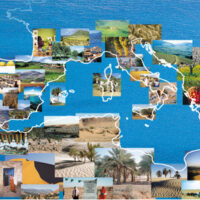 CIHEAM MontpellierOur vision is that of a Mediterranean basin characterised by a spirit of cooperation.
CIHEAM MontpellierOur vision is that of a Mediterranean basin characterised by a spirit of cooperation.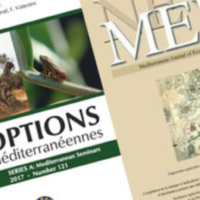 CIHEAM publicationsOur publications and communication tools aim to facilitate decision-making processes for political, economic and agricultural actors in the Mediterranean region
CIHEAM publicationsOur publications and communication tools aim to facilitate decision-making processes for political, economic and agricultural actors in the Mediterranean region News and events
News and events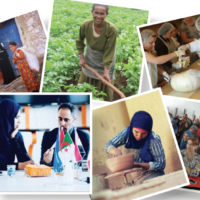 Press review (Scoop.it)
Press review (Scoop.it) Master programmesThe CIHEAM Montpellier stands for both personalised accompaniment and international openness.
Master programmesThe CIHEAM Montpellier stands for both personalised accompaniment and international openness.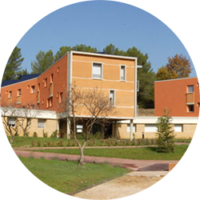 Campus & student lifeSince 1962, almost 95% of our foreign students have been granted accommodation on site.
Campus & student lifeSince 1962, almost 95% of our foreign students have been granted accommodation on site.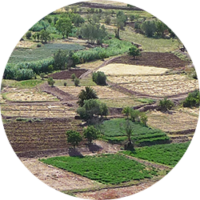 Doctoral platformShaping the scientists of tomorrow through research training… A natural commitment of the CIHEAM Montpellier
Doctoral platformShaping the scientists of tomorrow through research training… A natural commitment of the CIHEAM Montpellier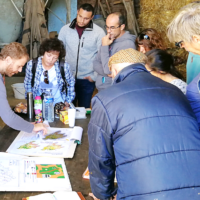 ProjectsOur research and cooperation projects are tools for inclusive development, they take into account the populations and rural and coastal territories of the Mediterranean.
ProjectsOur research and cooperation projects are tools for inclusive development, they take into account the populations and rural and coastal territories of the Mediterranean.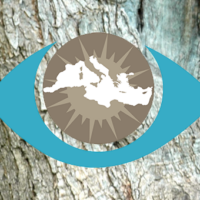 Mediterranean online catalogueA unique Documentation Center on the Mediterranean,
invested in sharing knowledge.
Mediterranean online catalogueA unique Documentation Center on the Mediterranean,
invested in sharing knowledge.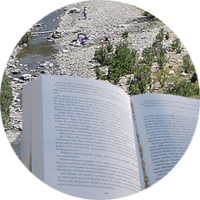 Scientific productionThe scientific production of the CIHEAM Montpellier is the fruit of collaborations by our lecturer-researchers, associated experts, students and research partners.
Scientific productionThe scientific production of the CIHEAM Montpellier is the fruit of collaborations by our lecturer-researchers, associated experts, students and research partners. Becoming partnersCreating partnerships is part of the genetic make-up of the CIHEAM Montpellier... Join one of its projects or study programmes, support its actions.
Becoming partnersCreating partnerships is part of the genetic make-up of the CIHEAM Montpellier... Join one of its projects or study programmes, support its actions.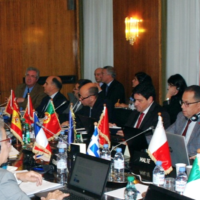 Ministerial meetingsThrough the Ministerial, CIHEAM contributes to the construction of a dialogue between the Mediterranean countries around questions relating to agriculture and the rural world.
Ministerial meetingsThrough the Ministerial, CIHEAM contributes to the construction of a dialogue between the Mediterranean countries around questions relating to agriculture and the rural world.